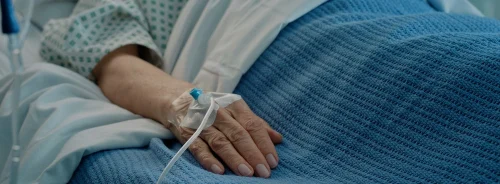ICU Management & Practice, ICU Volume 11 - Issue 3 - Autumn 2011
Still in the throes of economic turmoil and famous for political disputes, there are many reasons why one might wonder how Ireland's Intensive care Medicine (ICM) system could be accurately summarised while the country remains in such a state of flux. The division of this island into Northern Ireland and the Republic has never prevented close cooperation within the ICM community, however. Although two healthcare systems operate on the island of Ireland, the unity of purpose of the critical care community, north and south, has generated a collaborative entity in terms of continuing education, research, training systems and examinations. This is a considerable accomplishment for the Irish ICM community, as divisions between these jurisdictions were strong during the last 50 years as the specialty developed.
We now have a well-organised ICM training programme, with a fellowship examination, which has cross-border support and recognition. A collaborative clinical trials group has been established and has published some fundamental descriptive data. However a lack of integrated planning and inadequate bed capacity mean that there is still much to address in ICM here. The fact that the Republic of Ireland is currently undergoing such a dramatic economic reversal will make this particularly challenging.
History
The first critical care units evolved in Belfast and Dublin around 1960 and several factors accelerated the development of intensive care in the following years, particularly the coming of 'open heart' surgery (with cardiopulmonary bypass) in 1961. Critical care nursing (and associated training programmes) began in 1971. As in many European and other countries, the medical staffing of intensive care units was initially by anaesthetists, with mechanical ventilation as the keystone of the service. More formal medical training in Critical Care started with the foundation of the Intensive Care Society of Ireland (ICSI) in 1987 and was consolidated with the origin of the Irish Board of Intensive Care Medicine in 1994. There are now 12 major ICUs (recognised for training) in Ireland. Building upon these foundations enabled us in 2005 to introduce an all-island collaborative Irish Critical Care Trials Group (ICCTG). The latter has drawn on international assistance, including from the ANZICS critical care trials group, to make important first steps in publishing some fundamental descriptive data for Ireland.
Specialisation
Irish doctors, being from a small country with a tradition of emigration, have tended to travel widely during training, often returning here with pioneering expertise. Thus the first specialists here to identify themselves primarily as intensivists had experience within the Australian and US medical systems. Specialty bodies were founded largely by these internationally trained intensivists, who had seen first hand elsewhere how the role was developing away from theatre anaesthesia. The evolution towards specialty status was further advanced when the first diploma of the Irish Board of Intensive Care Medicine (DIBICM) was awarded in 1997 and the first joint exam was given with the European Diploma in Intensive Care (EDIC) in 2001. This has become integrated within the Irish training bodies for anaesthesia, medicine and surgery in conjunction with the ICSI and recently has gained Fellowship status under the auspices of the Joint Faculty of Intensive Care Medicine (JFICM, Ireland) in 2008.
The nascent Joint Faculty of Intensive Care Medicine oversees certain interests of our developing specialty. This body aims to develop training programmes for medical specialists with an interest in ICM, determining the nature and duration of their specialist training, and the examination entry criteria. The JFICMI will accredit suitable ICU's for such specialist training. It also supports ICM specialists with their continuing professional development and coordinates courses for this purpose. They are also keen to advance the role of the intensivist to full specialist status, and commenced the formal application process with the Irish Medical Council in this regard. The precise division of duties between the JFICMI and the ICSI is still becoming clear, however.
Intensive Care Society of Ireland (ICSI): Today
The ICSI presently has a membership of over 200. Membership has declined somewhat as the separation between anaesthetist and intensivist has been established. It has taken on a multiplicity of roles, primarily involving promotion of the development of ICM in Ireland. These promotional roles are achieved by organising meetings and scientific symposia; encouraging research including by the awarding of grants; and interacting with healthcare authorities at various levels. The society also arranges courses in collaboration with the training committee of the ESICM and with the BASIC programme, providing introductory training in the discipline of ICM. Since 2003 the ICSI also coordinates more advanced courses preparing candidates for the specialist diploma exam. There are two regular conferences per year, a large international meeting and another regional meeting. The latter is often held in collaboration with a special interest group, such as the Microbiology Society (ISCM), the Northern Ireland Intensive Care Group, the College of Anaesthetists, or the University College London Anaesthesia / Intensive Care group. The UCL joint meeting is in Dingle, and takes place every alternate year, including in October 2011. There are also refresher courses (two per year), which rely primarily on Irish experts, but the larger conferences incorporate international speakers. The calibre of these speakers has been outstanding, a pattern we hope to sustain. Further joint meeting have been held with the ESICM, the ICS (UK), the Scottish Society (SICS) and the Irish association of The ICSI also takes a role in patient advocacy. Its status as a non-governmental, charitable organisation makes this possible. This at times involves meeting with individuals or patient groups who are unable to interpret their experiences of critical illness, or who are unhappy with the services they have received. We can help them articulate their views or to lobby for change. More commonly, it involves raising awareness of the lack of bed capacity that creates unnecessary pressure in many hospitals in Ireland.
Irish Critical Care Trials Group
The advent of the Irish Critical Care Trials group is one of the most promising aspects of the ICSI. While much high quality ICU research has been conducted at laboratory level in Ireland in recent years, the clear pattern of modern times is that meaningful clinical ICU studies must be collaborative and multi-centred. The first such paper from Ireland was a descriptive study of demand for ICU resources (Charles et al. Ir Med J 2002). The predictable finding that we had 99% bed occupancy has been helpful in the patient advocacy role previously discussed. Also the identification of units for that study that could collate and report data efficiently has been useful for further work, some of which has been reported. These include studies on acute respiratory distress syndrome and catheter-related sepsis. These are by convention published under the authorship of the Irish Critical Care Trials group. Hypothesis-testing randomised trials are in their early stages by now, including a large study on the effect of statins in sepsis.
Progress
High quality audit has been lacking in Irish hospital medicine, perhaps because of the large number of small hospitals the country has. The economies of scale of modern medicine are leading to integration of care, and a major reconfiguration of services is planned. This should enhance the ability to record and measure throughput and outcomes. In the field of ICM we are likely to collaborate with the ICNARC data collection systems of the United Kingdom. It would seem difficult to envisage a much better audit system and the advantages for collaboration between the two islands are obvious. Some units in the Republic and in Northern Ireland are already working with ICNARC and the ICSI aim ultimately for full participation.
Transport of the critically Ill within Ireland has traditionally been inadequate. A Mobile Intensive Care Ambulance service (MICAS), set up in 1996 by the Irish Dept of Health in conjunction with the ICSI, aimed to deal with this issue by providing a designated ambulance, which was staffed by experienced ICM trained staff for the retrieval of critically ill. This has generally been a success and the road network has also improved greatly. Northern Ireland also initiated a retrieval service (NICCATS), which is more complete in its functionality, working on a 24/7 basis. While tertiary services are specialised in the bigger cities, until recently the road network made rapid transit very difficult when dealing with unstable patients. The recent establishment of an extracorporeal life support (ECLS) centre in Dublin has further expanded the role of this transport service. It has recently been possible for the most unstable patients to be commenced on extracorporeal membrane oxygenation at outlying centres and rapidly moved several hundred kilometres by road to the ECLS centre by the retrieval team.
Future Challenges
The pattern of the Irish economy in recent years must raise concern about the future of critical care as an expensive form of medical practice. Since around 2006 the country has been severely affected by the consequences of an economic collapse. By that time the government in the republic had commissioned a major analysis and report on Intensive Care services with a view to planning future bed requirements, from Prospectus, a consultancy group. Its aim was to provide a template to plan for 2020 so that services by then could match population needs. However the government and its authorities have not yet even published the report, which cannot bode well for its implementation. It found that we have roughly half of the bed capacity required at present. As the costs of ICM in Ireland are over €2200 per bed day, a doubling of critical care bed capacity is difficult to envisage in the present economic conditions.
The great dilemma we are likely to face in the coming years will be how to optimally provide for a growing, and ageing, population with resources that are already inadequate. Economic hardship will also probably worsen the health of many of the population. Because of this, paradoxically, recessionary times tend to increase medical inflation. Nonetheless, the enthusiasm of the ICM community here is enormous. Ireland remains an outward-looking and optimistic country, and those of us involved in caring for the sickest patients hope to maintain the momentum established in recent decades by our colleagues.





